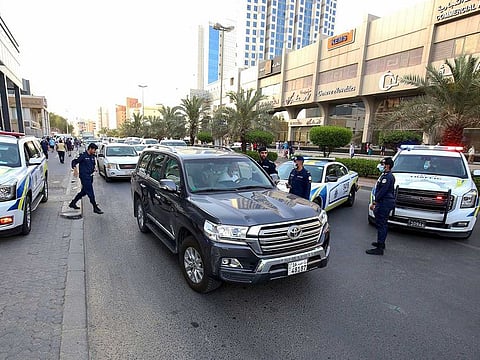Kuwait rounds up 964 illegals in 5 months for violating country’s labour and residency laws
Domestic labour accounted for 36% of the apprehended expats

Cairo: Kuwaiti authorities have rounded up 964 illegal expatriates in the past five months for violating the country’s labour and residency laws, according to recent official figures.
Domestic workers accounted for around 36 per cent of the total illegals arrested in a nationwide crackdown since the start of this year, the figures released by the Public Authority of Manpower (PAM) showed.
Other arrested illegals included 512 private sector employees and 61 dependents of expatriate families.
The statistics showed a significant rise in the number of house labourers, who escaped from their sponsors and illegally took other jobs in the private sector.
“PAM inspection tours exposed dozens of fugitive domestic workers, employed on a daily basis in the fields of construction, floor tile fixing and decoration works,” Kuwaiti newspaper Al Jarida quoted unidentified sources as saying.
They added that in view of the large number of house workers illegally doing other jobs, PAM and the Interior Ministry are working to devise a water-tight mechanism that would stop such labour from sneaking into the private sector.
Other arrested violators in the clampdown included irregular workers, who peddled wares and used electric appliances without a licence.
The violating private sector workers will be deported from Kuwait while their original employers will have their registers, on which these workers are listed, suspended until the deportations are verified.
According to the sources, Kuwaiti authorities are determined to press ahead with the countrywide campaigns to arrest illegal labour as part of efforts to combat fake work visas.
Foreigners make up nearly 3.4 million of Kuwait’s overall population of 4.6 million.
In recent months, there have been increasing calls in Kuwait for curbing foreigners’ employment along accusations that migrant workers have strained the country’s infrastructure facilities amid economic repercussions from COVID-19.
Sign up for the Daily Briefing
Get the latest news and updates straight to your inbox



